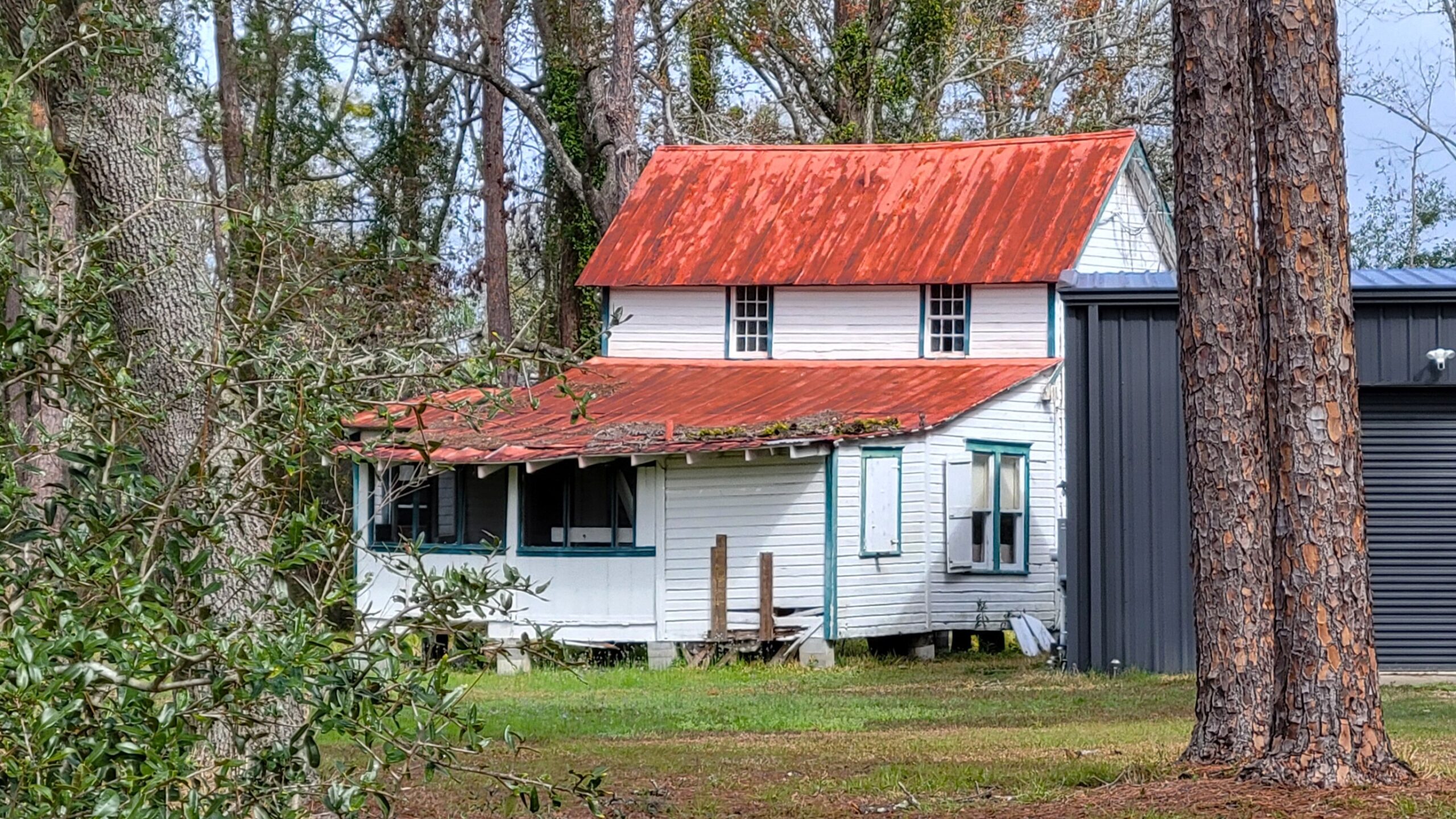A 145-year-old tin-roofed farmhouse in Mandarin has sparked a struggle between preservationists who want to save the home and an owner who wants to demolish it.
The Henry C. Arpen farmhouse is already on the National Register of Historic Places and meets four of the city’s seven criteria to get a local landmark designation.
The house is one of only two buildings in Mandarin to be included on the National Register, according Tracy Arpen, whose great-uncle built the house. The other is the Mandarin Store and Post Office.
“It’s nationally recognized as an historic structure,” said Arpen, a retired Jacksonville deputy general counsel. “It was not designed by a great architect — it was sort of a homebuilt thing; no two windows in the home are the same size because it was constructed from salvage. But it is kind of unique, and it was one of the last remaining farmhouse structures that date back to the late 1800s.”
But the house’s current owner opposes preservation.
Bordan Development LLC stated in a structural evaluation that the cost to repair the house far exceeds its value and it “should be demolished in place if not relocated,” according to a city planning department report.
Officials at Bordan Development could not be reached for comment this week.
The Jacksonville Historic Preservation Commission in January introduced a bill that could save the farmhouse. The bill, requesting local landmark status for the house, is set for a public hearing at 4:30 p.m. Wednesday before the City Council Land Use and Zoning Committee.
Arpen will be there to try to save the structure.
History of the farmhouse
The two-story wood frame home was built in 1880 on O’Connor Road, off what is now Marbon Road in south Mandarin. Farmer Henry Arpen and his wife, Emmaline, moved into it on a 17-acre tract of land that was once part of the Joseph Hagins Spanish Land Grant, one of Florida’s earliest private land holdings.
The home pre-dates the railroad era in Florida. Pre-fabricated and mass-produced construction materials such as windows were not easily obtained by home-builders of the late 1800s. Local oral history indicates that the Arpen House was built using materials salvaged from a wrecked barge that had beached on the St. Johns River, according to a WJCT News story in 2019.
READ MORE: Advocates try to save civil rights landmark in St. Johns County
That construction method of what is often termed a Florida Cracker-style home was one of reasons why the home meets four of the seven criteria to be designated a local landmark, according to a city planning department report.
“Although considered a simplistic style, Frame Vernacular-style buildings are important because they represent vanishing examples of how rural and lay builders historically utilized simple and time-tested construction principals, as well as local building materials available at the time,” the bill states.

When the building received national register designation in 2019, it was listed in “excellent condition, retaining the integrity of its exterior and interior features,” the bill states. But shortly after that designation, the 17-acre site off O’Connor Road was rezoned from rural residential status to one allowing more buildings per acre.
The developer proposed a 33-home subdivision, committing to preserving the home by either moving it to a new location outside the development or “pledging to relocate it to Lot 1 within the development” and assume all reasonable costs, the City Council bill states.
But in 2022, the building’s owner “illegally removed the chimney” without a required certificate of appropriateness, then “illegally moved it without a required city permit” about 2,000 feet east to its current location on Linjohn Road, the bill states.
Since then, the home and its interior have been exposed to two years of “weatherization and unregulated activity,” and the owner has indicated that its structural integrity was compromised during the relocation, according to the planning department report.
“When they moved the house and put it on a trailer to be moved, they tore the chimney off and they didn’t bother to patch the hole in the roof,” Arpen said. “Since then it has been a classic case of demolition by neglect. They just let the thing deteriorate. It is salvageable, but no doubt it would be much more expensive to rehabilitate than it would have been if they had moved promptly with everything.”
Request for demolition
On Oct. 8, the owner applied for a permit to demolish the house in violation of the zoning, and written description and commitments to preserve the historic structure, the bill states.
The Jacksonville Historic Preservation Commission had to review the demolition request because the house is on the national historic registry, Arpen said. The commission denied the request in December and also recommended the home for potential local landmark designation.
The owner is appealing the denial to City Council.
The Planning Department’s review of the local landmark application states that the house is one of a small number of historic homes remaining in the Loretto community, and “retains sufficient elements showing its architectural significance” as a vanishing example of how rural builders used local building materials such as southern yellow pine and cypress.
Arpen said his great uncle’s home is one of only two buildings in Mandarin to be included on the National Register of Historic Places. The other is the Mandarin Store and Post Office.







